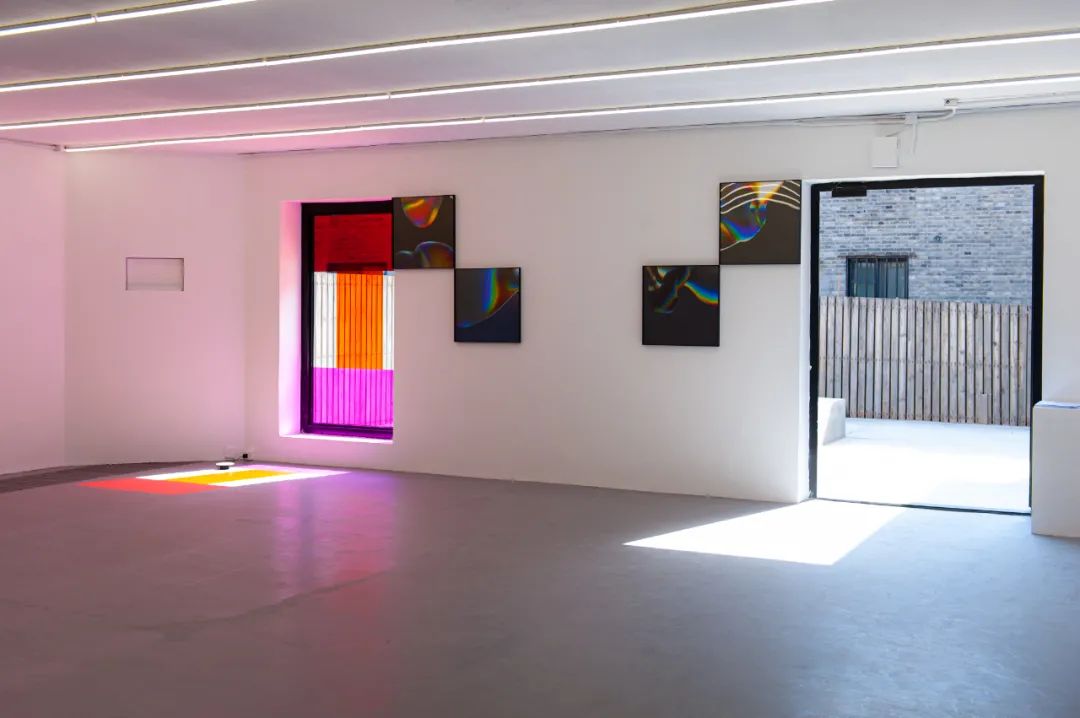
心智,拟像空间,北京,2022
王智一
WANG ZHIYI
心智
The Mind
开幕式/Opening: 03月05日 Mar. 05
展览时间/Exhibition Duration: 2022.03.05 – 2022.04.11
地点/Address: 北京市朝阳区草场地艺术区241-8
241-8, Caochangdi Art District, Chaoyang, Beijing
对谈内容
Dialogue
渣克周:先来谈谈展览的题目,为什么会采用这个名字?心智,智性,心灵……如何在这些同义词中做出选择的?
Zachariah Zhou: Let us start with the title of the exhibition. Why did you pick this name? How was the choice between mind, intellect, soul… being made?
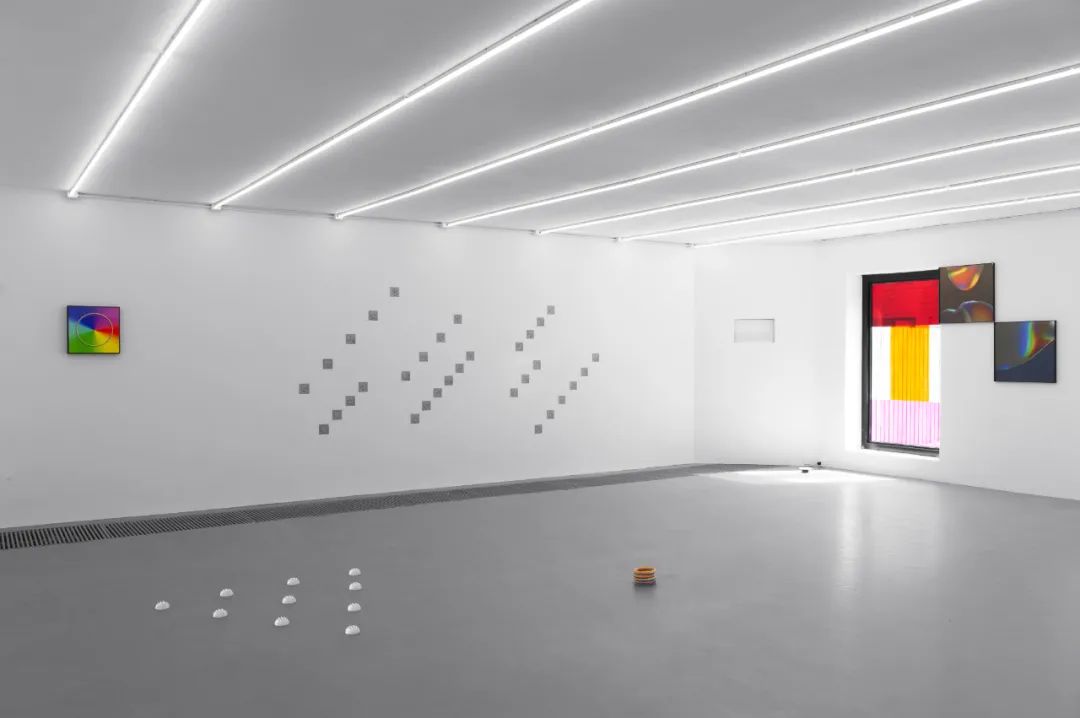
王智一:一个词的语义总是会围绕着当时的语境,采用“心智”这个命题,很大程度上是期许整个展览能够随着当下周遭发生的现状,能够带给观者一些更为灵活的启发。而“心智”在整个展览的结构下,呈现的其实是关于我们个体之心念思维中,由情感集结而形成的一种虚幻的系统。这是个自发生成的机器,里面多多少少包含游戏的智性,但又不尽然全是游弋。
Wang Zhiyi: The semantic meaning of a word always revolves around the context of the moment, and the adoption of the title "Mind" is, to a large extent, an expectation that the exhibition as a whole can bring the viewer some more flexible inspirations in line with the current situation of the surrounding. Under the exhibition structure, the "mind" is an illusory system formed by the collection of emotions in our thinking. It is a spontaneous generation machine, which contains more or less the intellect of a game, but not all of it is wandering.
渣克周:这个展览跟你之前做过的其他项目很不同,为何会产生这种变化?
Zachariah Zhou: This exhibition is very different from other projects you had done before; what made this change?
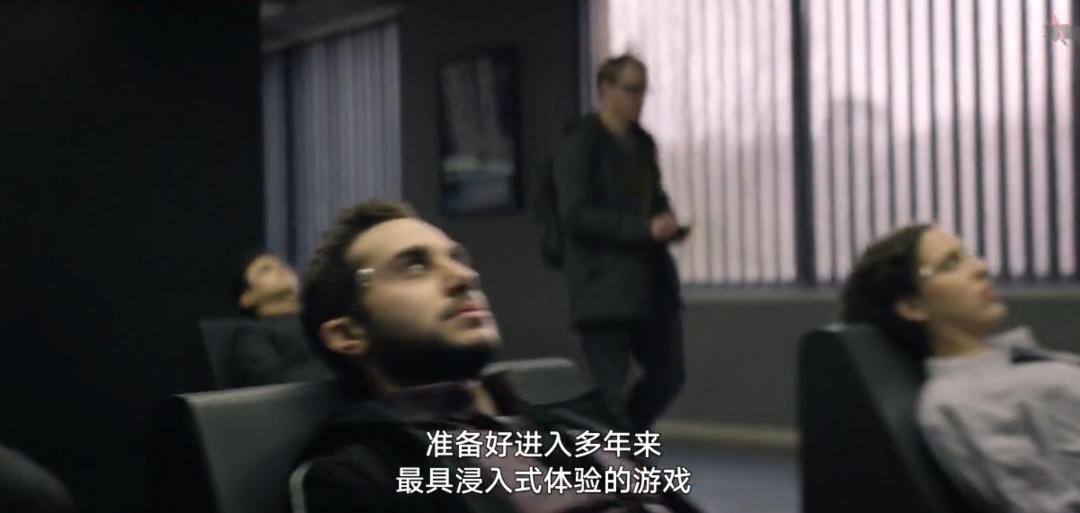
Black mirror – S04 E01
王智一:在如今,展览越来越像一种置景了。很多来现场看展览的受众除了拍照也很像游戏中上线打卡做日常任务的玩家一般,他们带有“来此处”的目的性,却对于“去哪儿”带有疑惑性。我作为一个游戏管理员希望自己的现场能与观众产生更多层面的交互,因此展览中故意设置了一些感觉能让参与者有机可乘的BUG,让大家去观察去“捡漏”。我希望展览的内核是翻译出那些让我们恍然大悟的规则,比方说一场游戏如何能够更让人成瘾。反之另一方面,我希望得到那些不被过度包装的虚假的试验数据,就好比我们抛出一个个圈套,轻松而自然——它们彼此之间应该是环环相扣的。
Wang Zhiyi: These days, exhibitions are becoming more and more like scenography. Many people who come to see the exhibition are taking pictures and are also like players in a game who go online to do their daily missions. They have the purpose of "coming here" but are confused about "where to go." As a game administrator, I hope my site can generate more interaction with the audience, so the exhibition deliberately sets up some bugs that feel like they can be accessed by the participants so that people can observe and "pick up" the bugs. I hope the exhibition's core is to translate the rules that make us enlightened, for example, how a game can be more addictive. On the other hand, I hope to get the false experimental data that are not over-packaged, as if we are throwing a trap, easy and natural – they should be interlinked with each other.

渣克周:这个展览中很多作品都有着一种游戏质感,对于你来说,艺术与游戏的关系是什么?
Zachariah Zhou: Many of the works in this exhibition have a playful quality. For you, what is the relationship between art and game?
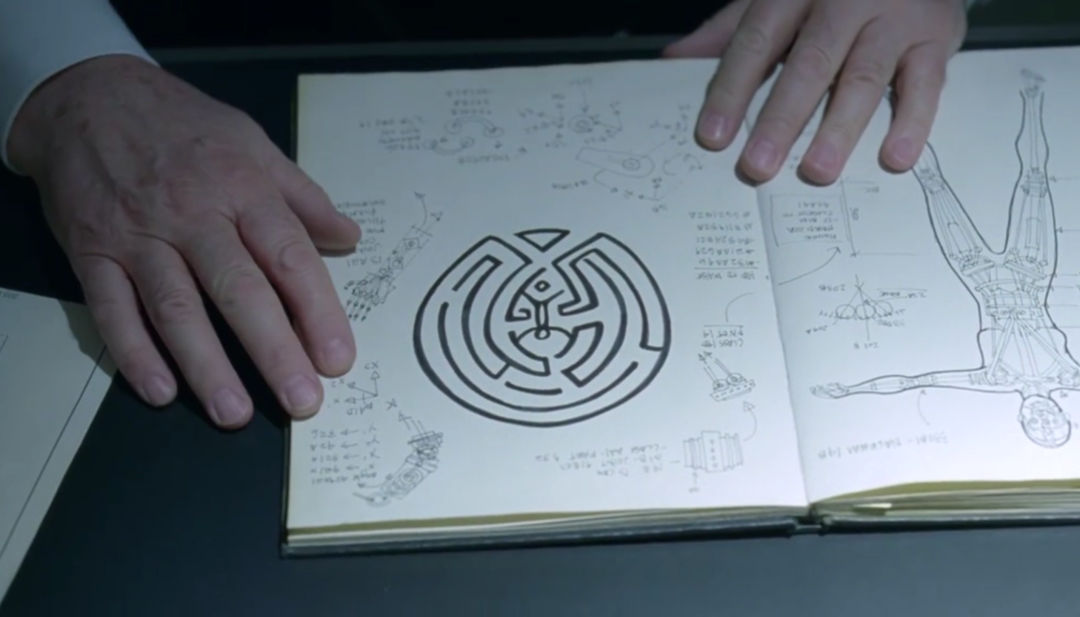
Westworld – S01 E06
王智一:游戏并非全然为娱乐而生,它不像碰运气,我认为这是一件带有算法,符合逻辑的活动。某种程度上而言,艺术与游戏都带有一种虚拟属性,而它们与现实最大的区别就在于读档重来的复生——这种重复性同时兼具生存技能培训和心智培养的目标。
Wang Zhiyi: The game is not all about entertainment; it is not like taking a chance. I think it is an algorithmic, logical activity. In a way, both art and games have a virtual attribute. The most significant difference between them and reality is that they are reborn by reading the file and starting over – a repetition that has the goal of both survival skills training and mental development.

渣克周:今天艺术与大众进行沟通的方式更多变成了社交媒体上po出的打卡照片,如何看待这种状态,这会对艺术家的创作产生什么影响?
Zachariah Zhou: Today, the way art communicates with the public has become more of a social media photoshoot. How do you see this state of affairs, and how does it affect the artist's work?
王智一:除了艺术,也许生活本身就是一种置景。大众有大众行为的逻辑,打卡拍照的行为在我看来恰恰证实了艺术带来的体验与经验是极其小众与反常规的。对于一个艺术创作者而言,往往需要主观的表达,客观的思考。因此在现阶段下,这样的情况反倒佐证了一种注意力经济的现象窥镜。
Wang Zhiyi: Besides art, perhaps life itself is a kind of scenography. The masses have the logic of mass behaviors, and the act of posing for photos seems to confirm that the experience of art is highly niche and unconventional. For an artist, it often requires subjective expression and objective thinking. Therefore, at this stage, such a situation proves a spyglass of the phenomenon of the attention economy.

渣克周:为何在作品中着迷于几何与数理关系?
Zachariah Zhou: Why are you fascinated by geometric and mathematical relationships in your work?
王智一:在我看来,比例与概率本身都是具备美感的,这种美感不仅仅体现在视觉语言上,在潜意识里,人脑会认同有序胜过无序,我们所以为的随机其实是被有机的算法所包含的。
Wang Zhiyi: In my opinion, proportions and probabilities are beautiful in themselves, not only in the visual language, but subconsciously, the human brain agrees that order is better than disorder and that what we think of as random is actually contained by an organic algorithm.

渣克周:光一直是你所擅长使用的一种元素,它在你的作品中充当了什么样的角色?
Zachariah Zhou: Light has always been one of the elements you specialize in using; what role does it play in your works?
王智一:光在展览现场被设定成一种指令,在黑暗里,趋光的本能命令我们要去亮的地方,有光的地方——这是客体对个体所产生的影响。而光的本身就是一件实体化的信标,一种被日常化的图腾,对应于色彩的诞生。
Wang Zhiyi: Light is set as a kind of command in the exhibition site; in the darkness, the instinct to the light commands us to go to the bright place, the place where there is light – this is the object's effect on the individual. Moreover, the light itself is a physical beacon, a totem that is everydayified, corresponding to the birth of color.
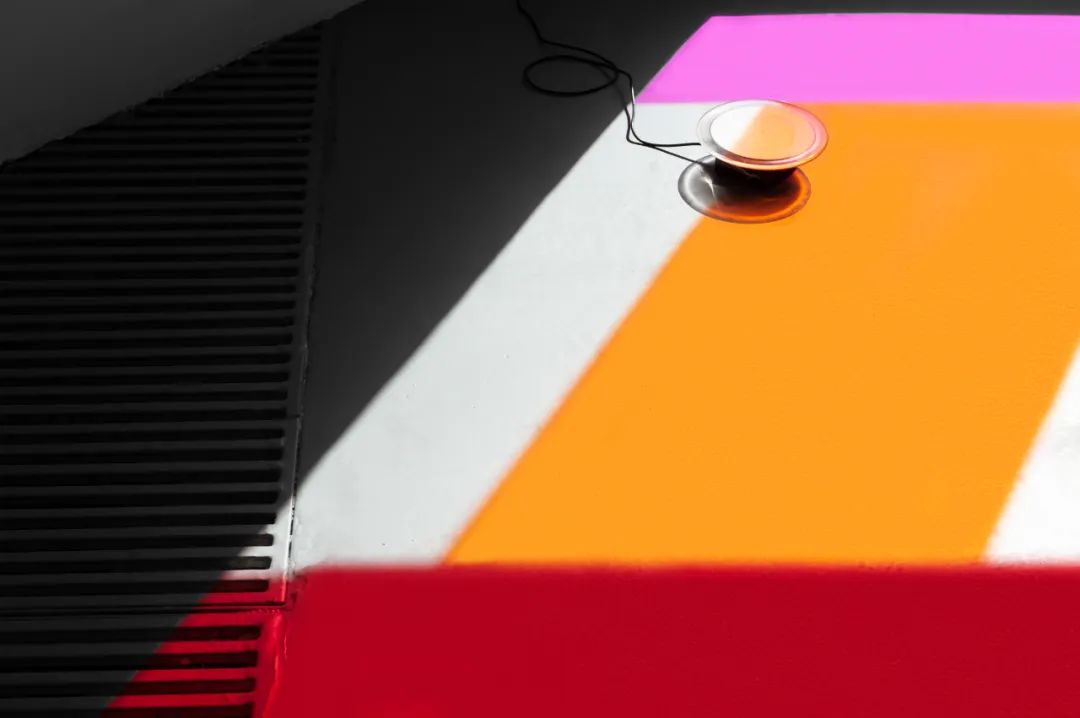
渣克周:那你如何考虑颜色的使用?
Zachariah Zhou: So what do you think about the use of color?
王智一:我绝大多数对于颜色的选择与取舍在直觉层面都是感性的,在我看来,单一颜色其实是并不构成对比变化的,色彩本身固然会带有某种心理暗示,但它们是一种需要被引导,被模糊化的指向。绝大多数情况下,它们就是一种基础介质,广泛的出现在现实中的各处,而我采用的处理方法往往是将它们集中并强化。
Wang Zhiyi: The vast majority of my choices and trade-offs with color are intuitive. A single color does not constitute a change in contrast, and colors themselves certainly carry some kind of psychological suggestion. However, they are a direction to be guided, to be blurred. In most cases, they are a primary medium, appearing everywhere in reality, and the treatment I use tends to focus and intensify them.
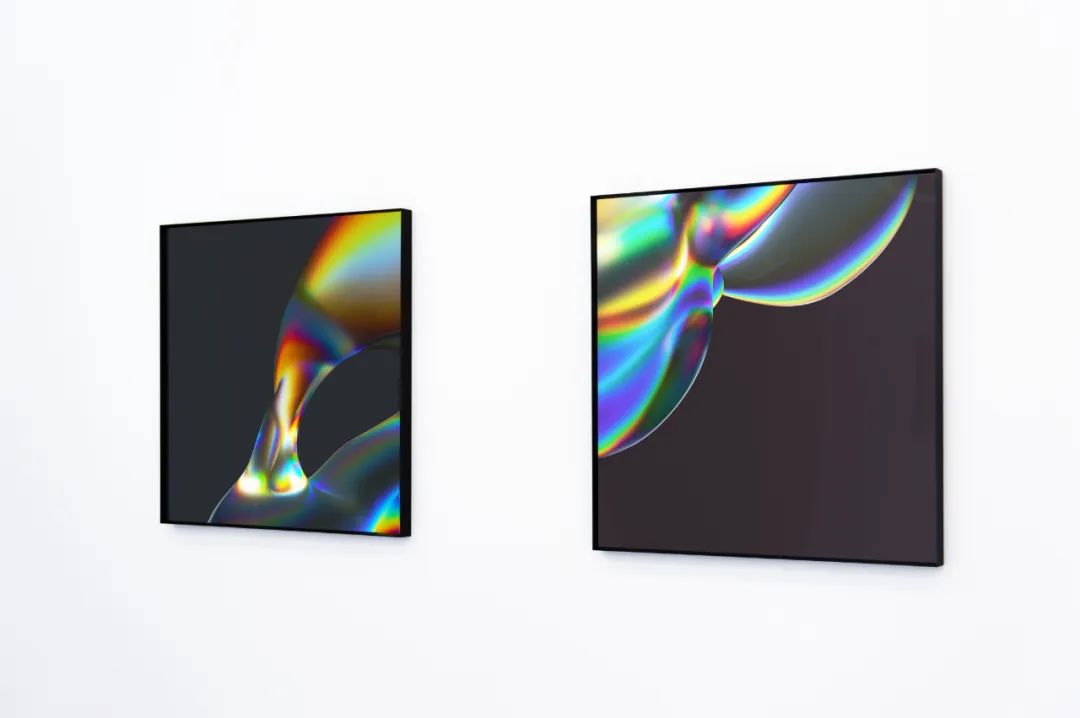
渣克周:为何会想到用色彩去表现声音?
Zachariah Zhou: Why did you think of using color to represent sound?
王智一:任何一种可视化的结构都是包含韵律的。如果我们把声音理解成为一种“气”,那么色彩的变化相对而言也就没有那么呆板——各个色彩在不同的环境下呈现出不一样的感觉与氛围,这种体验其实是相当微妙的。
Wang Zhiyi: The structure of any visualization contains rhythm. If we understand sound as a kind of "Chi, "then the change of color is relatively less rigid – each color presents a different feeling and atmosphere in different environments, and this experience is quite subtle.
渣克周:B厅中的空间性作品是如何构思?为什么会以这样的方式呈现,想传递的观念是什么?
Zachariah Zhou: How were the spatial works in Hall B conceived? Why are they presented in this way, and what is the idea you want to communicate?
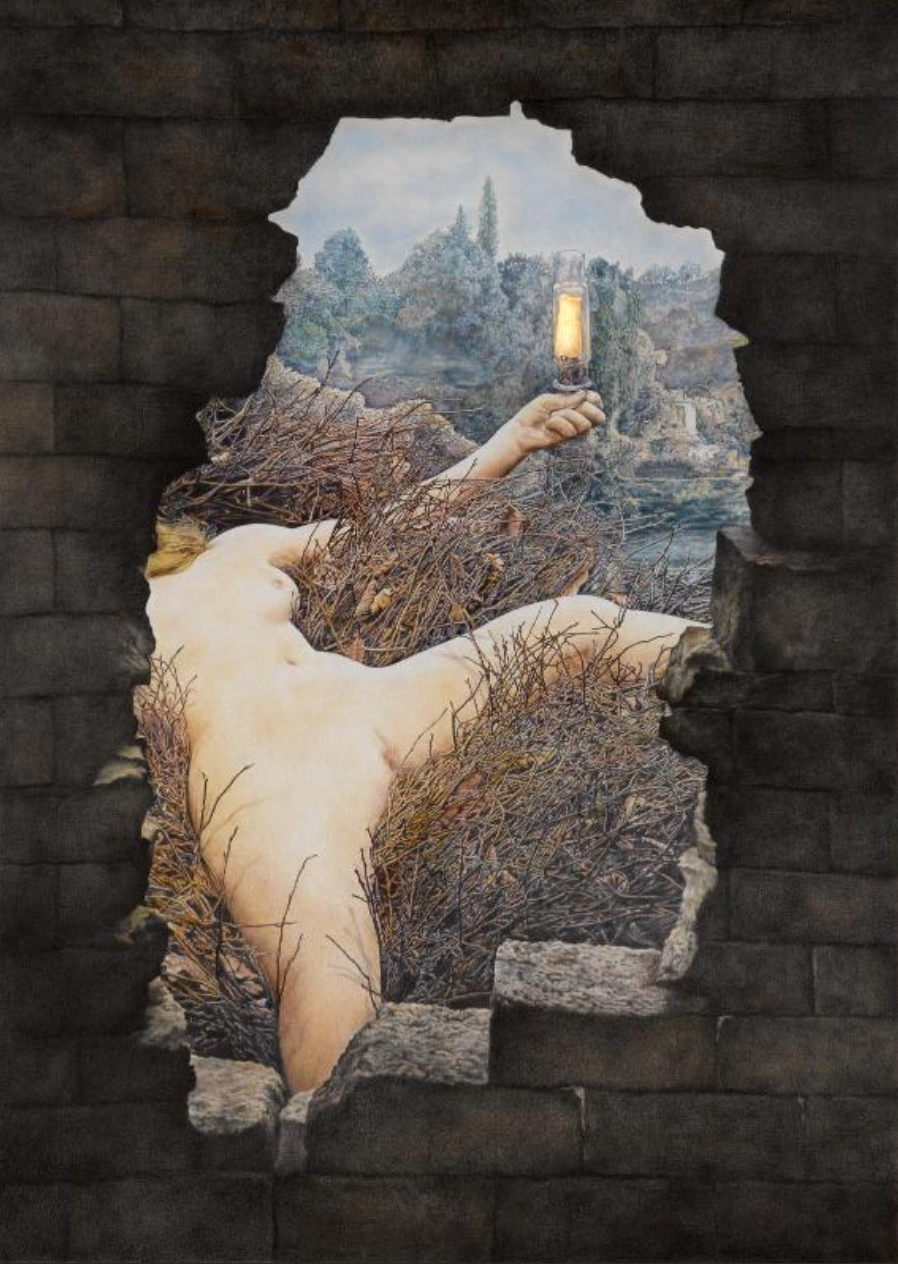
Étant donnés: 1. La chute d’eau, 2. Le gaz d’éclairage
(Given: 1. The Waterfall, 2. The Illuminating Gas),
Marcel Duchamp
王智一:马赛尔·杜尚(Marcel Duchamp)遗作《既定:瀑布第一,明气第二》(Étant donnés: 1°la chute d'eau 2° le gaz d'éclairage)中关于阴影的遮蔽性提到一种小孔成像。这种身居暗处的窥探行为恰好使我联想到法国电影理论家克里斯蒂安·麦茨指出的——电影放映的条件为窥视欲创造了适宜的情境:黑暗的放映厅中的银幕方框犹如钥匙孔。我想让大空间的整个现场变成一个游戏后台的临界点,引导观众凑过身来设身处地的感受一个已然设置好的彩蛋。
Wang Zhiyi: In Marcel Duchamp's posthumous work Étant donnés: 1° la chute d'eau 2° le gaz d'éclairage (Given: 1. The Waterfall, 2. The Illuminating Gas), the obscuration of shadows refers to a kind of small-hole imaging. This voyeuristic behavior in the shadows reminds me of what the French film theorist Christian Metz pointed out – the conditions of film projection create the proper context for voyeurism: the screen box in a darkened screening room is like a keyhole. I wanted to make the entire scene in the ample space a backstage proscenium for the game, leading the audience to come closer and place themselves site-specifically and feel the bonus that has already been set.
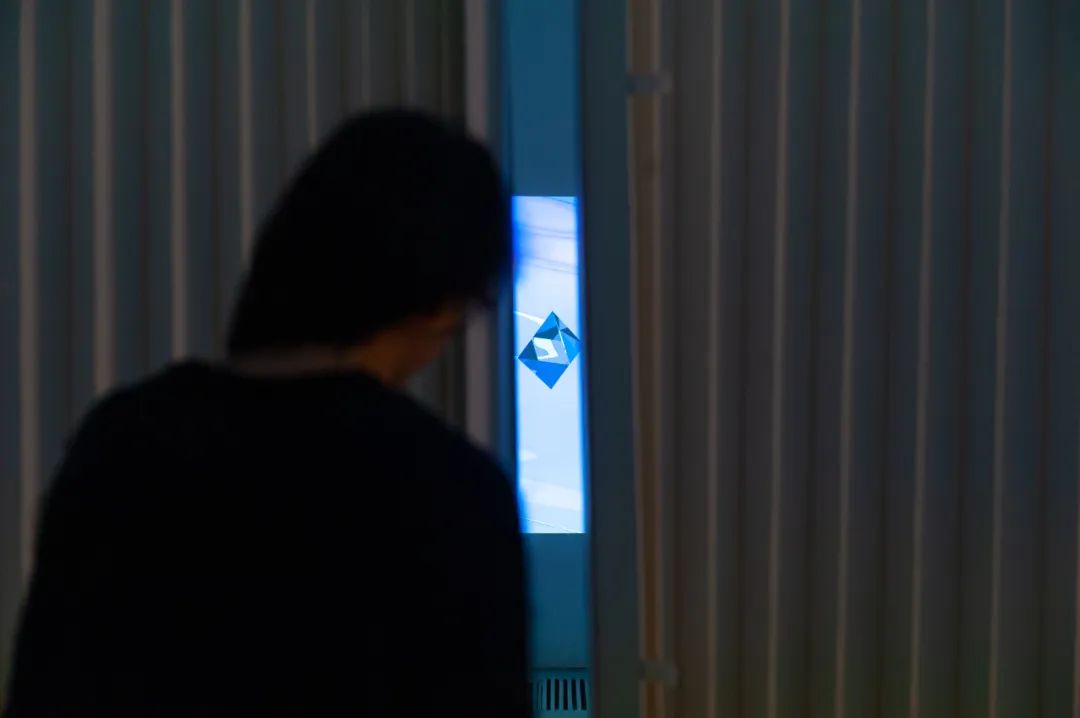
渣克周:空间结构中的那件视频作品也进行了NFT化,你是如何参与到NFT中去的,谈谈你对NFT的认识,它是否会真的对艺术的创作产生影响?
Zachariah Zhou: The video work in the space structure was also NFTed. How did you get involved in NFT, and tell us what you know about NFT and whether it impacts the creation of art?
王智一:这点也正是我通过作品想指出的,当我在墙面放置这层皮肤的很久之前,最早的虚拟货币已经藉由游戏装备所产生。很显然,这种交易正在构成一种完美的逻辑,就是虚拟游戏的概率恰好对位于现实世界的时间。时间就是效率,效率亦是金钱,而注意力也是骰子落下的节点。
Wang Zhiyi: This is exactly what I wanted to point out through the work, that long before I placed this skin on the wall, the first virtual currencies had been created through gaming equipment. Obviously, this kind of transaction forms a perfect logic in which the probability of a virtual game is the same as the time in the real world. Time is efficiency, efficiency is money, and attention is the point at which the dice fall.
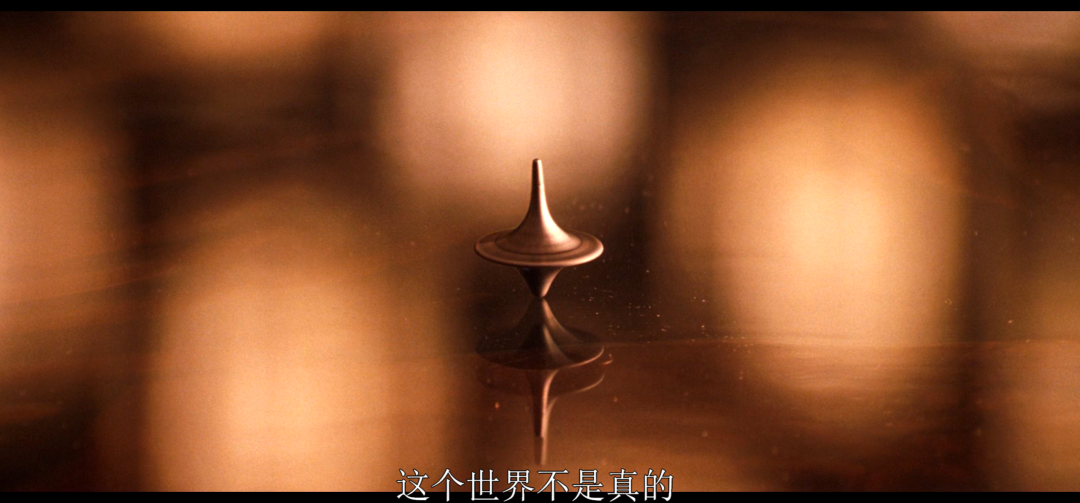
Inception
渣克周:这次疫情你无法来到现场参加开幕,布展也是远程沟通,这有点遗憾,但在疫情中这已经是艺术行业工作的常态,你认为这种变化会对艺术家以及艺术系统产生何种影响?
Zachariah Zhou: It is a bit of a pity that you could not be present for the opening of this epidemic and that the installation was communicated remotely, but this has been the norm in the art industry during the epidemic. How do you think this change will affect the artists and the art system?
王智一:是的,不过这正好证实了我们在系统检索中的脆弱,以及在失序现实中被逐渐锻炼成长的心智,不是吗?
Wang Zhiyi: Yes, but it just confirms our vulnerability to systematic search and the mind gradually being exercised and grown in the reality of disorder, doesn't it?
©文章版权归属原创作者,如有侵权请后台联系删除